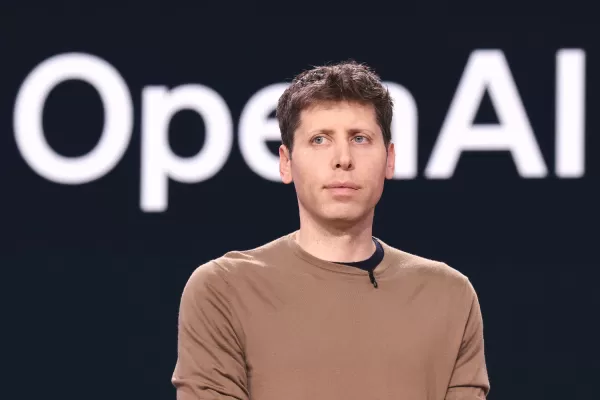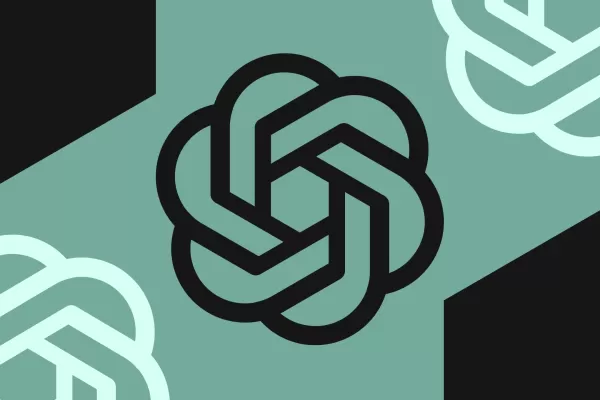Access to Future AI Models in OpenAI’s API May Require Verified Identification

OpenAI Introduces Verified Organization Program for Advanced AI Access
Last week, OpenAI announced a significant update to its developer policies, introducing a new verification process called the "Verified Organization." This initiative aims to enhance security and ensure responsible usage of the company's most advanced AI models and tools. While the program represents a step toward broader accessibility, it also signals a shift in how OpenAI plans to manage potential risks associated with increasingly powerful AI technologies.
According to OpenAI's support page, the Verified Organization program is designed to "unlock access to the most advanced models and capabilities on the OpenAI platform." Developers seeking to use these cutting-edge features must undergo this verification process, which involves submitting a government-issued ID from one of the countries supported by OpenAI’s API. Notably, each ID can only verify one organization within a 90-day window, and not all organizations will qualify for verification.
Why the Change?
In its announcement, OpenAI emphasized its commitment to balancing accessibility with safety. "At OpenAI, we take our responsibility seriously to ensure that AI is both broadly accessible and used safely," reads the statement. However, the company acknowledged that a minority of developers have misused the OpenAI API in ways that violate their usage policies. By implementing this verification process, OpenAI hopes to reduce misuse while still keeping advanced models available to legitimate users.
What Does Verification Entail?
The verification process itself is straightforward, taking only a few minutes. Developers need to provide a valid government-issued ID and go through a simple submission process. Once verified, organizations gain access to premium features and the latest model releases. However, OpenAI has made it clear that not everyone will pass the vetting process—certain entities may not meet eligibility criteria due to past behavior or other factors.
Potential Implications
This move reflects growing concerns over the ethical and secure deployment of AI systems. As AI models become more sophisticated, they also pose greater risks, such as enabling malicious activities or facilitating intellectual property theft. For instance, OpenAI has previously disclosed efforts to combat the misuse of its tools, including investigations into alleged violations involving groups tied to North Korea. Additionally, Bloomberg reported earlier this year that OpenAI was probing potential data breaches linked to a Chinese AI lab, highlighting the need for stricter controls.
The introduction of the Verified Organization program aligns with broader industry trends toward tighter oversight of AI development and distribution. It also underscores OpenAI's proactive stance in addressing emerging challenges in the field. At the same time, the decision to restrict access raises questions about inclusivity and whether smaller or newer organizations will face barriers to entry.
A Step Toward the Future
Despite these considerations, OpenAI framed the Verified Organization program as a necessary step forward. In a tweet accompanying the announcement, the company hinted at upcoming developments, suggesting that this program will prepare users for "the next exciting model release." Whether this initiative ultimately strengthens trust in AI or creates unintended consequences remains to be seen. One thing is certain—the landscape of AI governance continues to evolve rapidly.
Related article
 Nonprofit leverages AI agents to boost charity fundraising efforts
While major tech corporations promote AI "agents" as productivity boosters for businesses, one nonprofit organization is demonstrating their potential for social good. Sage Future, a philanthropic research group backed by Open Philanthropy, recently
Nonprofit leverages AI agents to boost charity fundraising efforts
While major tech corporations promote AI "agents" as productivity boosters for businesses, one nonprofit organization is demonstrating their potential for social good. Sage Future, a philanthropic research group backed by Open Philanthropy, recently
 Top AI Labs Warn Humanity Is Losing Grasp on Understanding AI Systems
In an unprecedented show of unity, researchers from OpenAI, Google DeepMind, Anthropic and Meta have set aside competitive differences to issue a collective warning about responsible AI development. Over 40 leading scientists from these typically riv
Top AI Labs Warn Humanity Is Losing Grasp on Understanding AI Systems
In an unprecedented show of unity, researchers from OpenAI, Google DeepMind, Anthropic and Meta have set aside competitive differences to issue a collective warning about responsible AI development. Over 40 leading scientists from these typically riv
 ChatGPT Adds Google Drive and Dropbox Integration for File Access
ChatGPT Enhances Productivity with New Enterprise Features
OpenAI has unveiled two powerful new capabilities transforming ChatGPT into a comprehensive business productivity tool: automated meeting documentation and seamless cloud storage integration
Comments (1)
0/200
ChatGPT Adds Google Drive and Dropbox Integration for File Access
ChatGPT Enhances Productivity with New Enterprise Features
OpenAI has unveiled two powerful new capabilities transforming ChatGPT into a comprehensive business productivity tool: automated meeting documentation and seamless cloud storage integration
Comments (1)
0/200
![BillyLewis]() BillyLewis
BillyLewis
 August 22, 2025 at 7:01:22 PM EDT
August 22, 2025 at 7:01:22 PM EDT
Wow, OpenAI's new verification program sounds like a smart move to keep things secure! But I wonder, will it make access too restrictive for smaller devs? 🤔


 0
0

OpenAI Introduces Verified Organization Program for Advanced AI Access
Last week, OpenAI announced a significant update to its developer policies, introducing a new verification process called the "Verified Organization." This initiative aims to enhance security and ensure responsible usage of the company's most advanced AI models and tools. While the program represents a step toward broader accessibility, it also signals a shift in how OpenAI plans to manage potential risks associated with increasingly powerful AI technologies. According to OpenAI's support page, the Verified Organization program is designed to "unlock access to the most advanced models and capabilities on the OpenAI platform." Developers seeking to use these cutting-edge features must undergo this verification process, which involves submitting a government-issued ID from one of the countries supported by OpenAI’s API. Notably, each ID can only verify one organization within a 90-day window, and not all organizations will qualify for verification.Why the Change?
In its announcement, OpenAI emphasized its commitment to balancing accessibility with safety. "At OpenAI, we take our responsibility seriously to ensure that AI is both broadly accessible and used safely," reads the statement. However, the company acknowledged that a minority of developers have misused the OpenAI API in ways that violate their usage policies. By implementing this verification process, OpenAI hopes to reduce misuse while still keeping advanced models available to legitimate users.What Does Verification Entail?
The verification process itself is straightforward, taking only a few minutes. Developers need to provide a valid government-issued ID and go through a simple submission process. Once verified, organizations gain access to premium features and the latest model releases. However, OpenAI has made it clear that not everyone will pass the vetting process—certain entities may not meet eligibility criteria due to past behavior or other factors.Potential Implications
This move reflects growing concerns over the ethical and secure deployment of AI systems. As AI models become more sophisticated, they also pose greater risks, such as enabling malicious activities or facilitating intellectual property theft. For instance, OpenAI has previously disclosed efforts to combat the misuse of its tools, including investigations into alleged violations involving groups tied to North Korea. Additionally, Bloomberg reported earlier this year that OpenAI was probing potential data breaches linked to a Chinese AI lab, highlighting the need for stricter controls. The introduction of the Verified Organization program aligns with broader industry trends toward tighter oversight of AI development and distribution. It also underscores OpenAI's proactive stance in addressing emerging challenges in the field. At the same time, the decision to restrict access raises questions about inclusivity and whether smaller or newer organizations will face barriers to entry.A Step Toward the Future
Despite these considerations, OpenAI framed the Verified Organization program as a necessary step forward. In a tweet accompanying the announcement, the company hinted at upcoming developments, suggesting that this program will prepare users for "the next exciting model release." Whether this initiative ultimately strengthens trust in AI or creates unintended consequences remains to be seen. One thing is certain—the landscape of AI governance continues to evolve rapidly. Nonprofit leverages AI agents to boost charity fundraising efforts
While major tech corporations promote AI "agents" as productivity boosters for businesses, one nonprofit organization is demonstrating their potential for social good. Sage Future, a philanthropic research group backed by Open Philanthropy, recently
Nonprofit leverages AI agents to boost charity fundraising efforts
While major tech corporations promote AI "agents" as productivity boosters for businesses, one nonprofit organization is demonstrating their potential for social good. Sage Future, a philanthropic research group backed by Open Philanthropy, recently
 Top AI Labs Warn Humanity Is Losing Grasp on Understanding AI Systems
In an unprecedented show of unity, researchers from OpenAI, Google DeepMind, Anthropic and Meta have set aside competitive differences to issue a collective warning about responsible AI development. Over 40 leading scientists from these typically riv
Top AI Labs Warn Humanity Is Losing Grasp on Understanding AI Systems
In an unprecedented show of unity, researchers from OpenAI, Google DeepMind, Anthropic and Meta have set aside competitive differences to issue a collective warning about responsible AI development. Over 40 leading scientists from these typically riv
 ChatGPT Adds Google Drive and Dropbox Integration for File Access
ChatGPT Enhances Productivity with New Enterprise Features
OpenAI has unveiled two powerful new capabilities transforming ChatGPT into a comprehensive business productivity tool: automated meeting documentation and seamless cloud storage integration
ChatGPT Adds Google Drive and Dropbox Integration for File Access
ChatGPT Enhances Productivity with New Enterprise Features
OpenAI has unveiled two powerful new capabilities transforming ChatGPT into a comprehensive business productivity tool: automated meeting documentation and seamless cloud storage integration
 August 22, 2025 at 7:01:22 PM EDT
August 22, 2025 at 7:01:22 PM EDT
Wow, OpenAI's new verification program sounds like a smart move to keep things secure! But I wonder, will it make access too restrictive for smaller devs? 🤔


 0
0





























